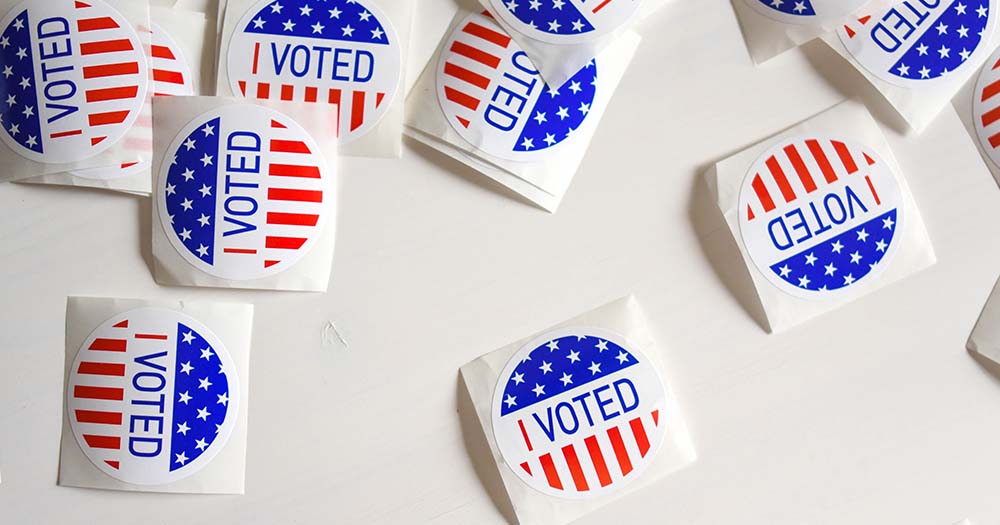The 2022 US midterm election will take place on November 8, and both LGBTQ+ and reproductive rights are at risk.
Democrats currently hold a thin majority in the US House, and Republicans have a majority in the Senate. Depending on the midterm outcome, either party could take control, having huge implications for the country’s queer community.
In September, the Senate proposed a vote to protect marriage equality through the Respect for Marriage Act, but this vote will not happen until after the midterm elections are over. If Republicans win, marriage equality could be up for debate. A conservative majority could threaten other federal Supreme Court protections as we saw earlier this year with the overturning of Roe v Wade.
SPONSORED CONTENT
LGBTQ+ rights have been under attack this year, and Trans youth are particularly at risk with new laws preventing Trans students from participating in sports and using gender-affirming bathrooms being proposed every month. Florida’s Don’t Say Gay bill limits students and teachers from mentioning gender identity and LGBTQ+ issues in the classroom, and several conservative states have banned LGBTQ+ books from their school libraries. Earlier this week, Republicans introduced a national anti-Trans bill that would allow parents to sue if their child is exposed to any gender identity themes including in a sex education setting.
With so many rights hanging in the balance, Trans voters matter now more than ever, but LGBTQ+ activists are concerned that Trans voters could be intimidated at the polls. With strict voter ID laws in some states, Trans citizens could be turned away if their name or gender presentation doesn’t match their government issued ID. This is of particular concern with a recent uptick in Trans hate crimes. The policy director for the National Center for Transgender Equality, Olivia Hunt said:
“This is one of the first election cycles where we can really expect trans people to have enough visibility that we might find ourselves deliberately targeted at the polls rather than just being swept up with other marginalized groups.”
The good news is that a record number of LGBTQ+ candidates are running for office, and with a historic number of queer politicians on the ballot, we could see major progress in LGBTQ+ representation.
There are 678 openly queer candidates on the ballot in this US midterm election which is an 18% increase from the 2020 election. Many candidates were motivated to run for office after witnessing a major rise in homophobic and anti-Trans bills introduced in the states this year, and we could see several historic firsts. For example, Tina Kotek and Maura Healey could be the first out lesbian governors in Oregon and Massachusetts. If Becca Balint wins Vermont, she will be the first woman and first openly LGBTQ+ person elected in the state.
Thankfully, LGBTQ+ voter participation is at an all-time high, with 93% of LGBTQ+ registered voters showing up at the polls in 2020. US citizens living abroad can also vote in the midterm election, as long as they are registered voters who request their ballot in advance.
© 2022 GCN (Gay Community News). All rights reserved.
Support GCN
GCN is a free, vital resource for Ireland’s LGBTQ+ community since 1988.
GCN is a trading name of National LGBT Federation CLG, a registered charity - Charity Number: 20034580.
GCN relies on the generous support of the community and allies to sustain the crucial work that we do. Producing GCN is costly, and, in an industry which has been hugely impacted by rising costs, we need your support to help sustain and grow this vital resource.
Supporting GCN for as little as €1.99 per month will help us continue our work as Ireland’s free, independent LGBTQ+ media.
